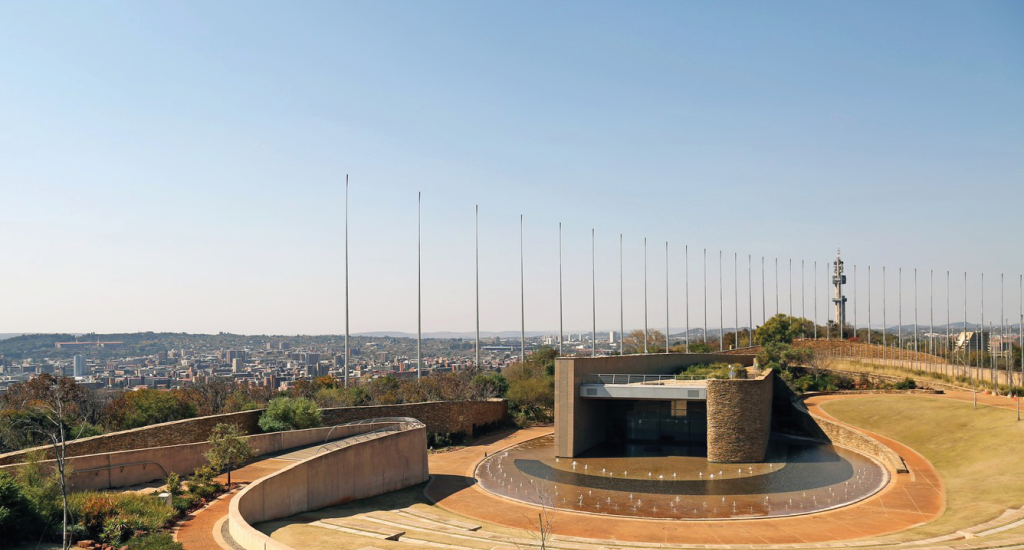Building bridges through tourism

For Soza Sydney Simango, tourism has always been more than just leisure. Rather, it is about building bridges between cultures, creating opportunities and, and ensuring communities benefit directly from South Africa’s rich heritage.
With a career spanning more than two decades, Simango has steadily risen through the ranks of tourism leadership, now serving as Divisional Head: Tshwane Tourism since July 2025.
“I began my career managing a cultural tourism camp in Limpopo, where I created business linkages between tourism operations and local communities,” Simango says.
That early start was rooted in a transformative provincial initiative. As part of a group of 60 young men and women recruited from 10 communities across Limpopo, Simango participated in a rural-based eco-tourism cultural and safari programme.
“On 17 October 2000, I was appointed as Camp Manager of the 10-bed Tshivhase Cultural Camp in Mukumbani, Sibasa,” he recalls.
His journey from that rural camp would take him across all spheres of government, non-profits and the private sector. He held leadership positions with BirdLife South Africa, the Department of Trade, Industry and Competition (dtic), the Department of Tourism and the City of Johannesburg. One of his proudest achievements was coordinating the COVID-19 Tourism Relief Fund in 2020. “We distributed R200 million to support 4 000 small, medium and micro enterprises (SMMEs) nationwide,” he recalls.
Leading Tshwane’s tourism vision
With two master's degrees in Development Finance, and Tourism Policy and Development, plus extensive training in public administration and leadership, Simango brings strong academic and strategic foundations to his current role. “This rich blend of strategic, operational, and policy-level experience led me to the role of Divisional Head: Tshwane Tourism, where I intend to continue to drive inclusive and sustainable tourism growth.”
In this role, he oversees the strategic planning, development and promotion of tourism in the City of Tshwane. His role involves coordinating tourism infrastructure projects, facilitating enterprise development, leading marketing initiatives and building public-private partnerships.
Tshwane’s competitive edge lies in its history, diversity and diplomatic prominence. “Tshwane is leveraging its rich historical legacy, cultural diversity, and strategic capital city status to position itself both locally and globally,” Simango explains.
A key growth driver is the Meetings, Incentives, Conferences and Exhibitions (MICE) sector. “Tshwane’s robust government infrastructure and academic institutions make it an ideal MICE hub,” he says. “MICE tourism supports local businesses across transport, accommodation, catering, and creative industries.”
Township tourism at the centre
For Simango, township tourism is central to his inclusive development agenda. “Township tourism is a major focus, and we are actively fostering inclusive tourism development by supporting SMMEs through enterprise development programmes, skills training, and incubation,” he says.
Projects in Mamelodi and Atteridgeville, coupled with partnerships with funding organisations such as the Small Enterprise Development Agency, are opening up new markets for township-based tourism operators.
Through targeted training and funding, the goal is to fully integrate township entrepreneurs into the formal tourism economy. “We aim to encourage authentic local experiences while empowering local communities,” Simango adds.
Destination branding
Among his proudest current projects is strengthening destination branding. “I am especially proud of the work we have started with the city and industry partners on the Tshwane tourism destination brand identity and promotion and the Liberation Heritage Route — both of which integrate tourism with cultural preservation and community empowerment,” he says.
The city’s marketing strategy is as diverse as its audience. “We adopt a storytelling-based and segmented approach, which tailors messages to different market segments – cultural tourists, youth travellers, business visitors – while emphasising Tshwane’s unique identity as South Africa’s capital,” he explains. Campaigns spotlight attractions such as the Union Buildings, Freedom Park, and township experiences.
Public-private partnership
Public-private collaboration, Simango says, is “central to Tshwane’s tourism success.” The city is deepening partnerships with the Gauteng Tourism Authority, national government, private sector players, academic institutions, and development agencies to deliver co-funded business incubators, event sponsorships, and shared destination branding.
This philosophy draws from his earlier work in business incubation and grassroots development. “My experience in business incubation has allowed me to develop scalable support models for tourism SMMEs, focusing on skills development, market access, and innovation. I integrate community-based tourism into strategic planning to ensure that tourism growth leads to real socio-economic upliftment.”
His commitment extends beyond his official role. Through Grassroots Concepts, a non-profit organisation he established in 2014 in his home village of Nkomo, in Giyani, Simango promotes youth and women-led tourism projects in under-resourced communities.
Looking ahead, Simango’s ambitions for Tshwane are bold. “My long-term vision is for Tshwane to be recognised as Africa’s capital of heritage, diplomacy, and innovation-driven tourism,” he says. “I envision a city where tourism is inclusive, empowering SMMEs in townships, celebrating diverse cultures and delivering lasting economic value.”v




